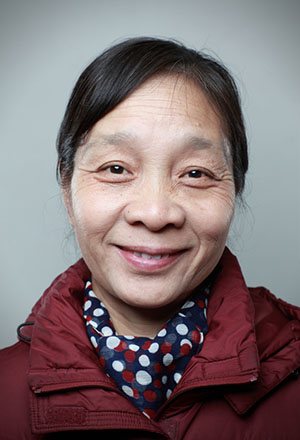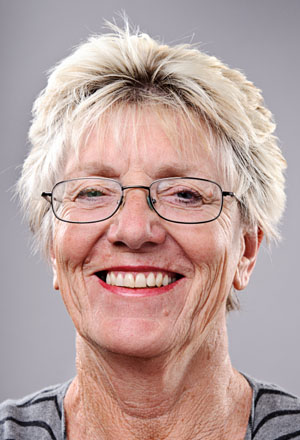Hilary Land (1) writes:
Some components of social infrastructure, such as childcare and social care services, are as important, indeed as essential as physical infrastructure such as roads and transport systems with respect to enabling women-and some men -to have the time and energy to access and take paid employment. But these components of social infrastructure are not only a means to this end but are also important in their own right. Children’s services and an environment in which every child’s wellbeing and development is valued irrespective of family circumstances and income are essential to a caring economy. The Sure Start programme represented and confirmed this view. Similarly, social care services are essential for older people when their health declines if they are to spend their later years with dignity and free from poverty. Adults of working age with disabilities or special needs also need social care services
At the same time, it also important that physical infrastructure is developed in ways which do not prioritise some groups’ wellbeing at the expense of others. For example, road and transport systems in the UK over the past 50 years have prioritised car drivers (mainly men) over children, older people and those with disabilities. More recent privatisation of public transport has exacerbated this. Children must now be escorted to school, placing constraints on parent’s (usually mothers’ or grandmothers’) time They have also lost play space to parked cars which also crack pavements, thus increasing the risk of frailer adults falling and being injured. Among older people falls are one of the most common reasons for going to A&E. Central government provides a ring-fenced budget for mending potholes in roads but not for cracked pavements.
The legislation in Wales which requires the development of all economic and social policies to be evaluated with respect to their impact on the well-being of future generations is one interesting method of taking account of the priorities of a caring economy. This is similar in some ways to the discussion of ‘an ethic of care’ which developed in the 1980s and 1990s, arguing that it should be used to assess and inform all social and economic policies. For example, Professor Anthea Tinker, who for a time headed up the research department of what was the then department of Local Government and Housing, pointed out ‘We could save ourselves a lot of trouble if we designed houses with the needs of people with disabilities in mind.’
At a fundamental level we must challenge the neo-liberal economic model and the assumptions on which it is based. First, that the economy is populated by independent individuals. Independence for men was key and should be acquired by being active in the labour market. The post-war welfare state in general and the social security system in particular, were underpinned by the male breadwinner/ dependent housewife model. Women as housewives had a primary duty (Beveridge’s word) to care for husbands, children and elderly relatives. These duties should take precedence over paid employment. Public social care services were provided mainly for those without female relatives living nearby. This model has been abandoned, starting in the 1980s. Now all adults of working age must take paid employment. Affordable formal childcare services are not always available and half of working mothers depend on grandparents (mainly grandmothers) to help with childcare. We are all interdependent to varying degrees throughout our lives.
What about adult care and carers who we are still a long way from valuing. The answer to that question goes back to the second assumption on which from the outset the neo-liberal model was based. Namely that only paid activities count as contributions to GDP-care within the family literally doesn’t count. (GDP went down if a man married his housekeeper.) Those who provide it are ‘economically inactive’ so the recent raising women’s pension age from 60 to 66 years and therefore requiring them to stay in employment six more years is necessary because pensions ‘have to be paid for’. Government advisors admitted that this might be difficult for carers of which there are many. After all a fifth of women in their 50s are carers. Moreover, healthy life expectancies of women living in the poorest areas are two decades less than those living in the wealthiest so irrespective of their caring responsibilities for others, they will have health problems of their own before they reach the new pension age. Men aged over 60 are now just as likely as women to be caring for a spouse or partner, but with higher pay than women on average, better pension entitlements and more opportunities to take early retirement than women the risk of poverty is less.
The third assumption is that ‘time is money’ so the less time a commodity or service takes to produce or deliver the better. As a result, care is reduced to a set of tasks undertaken in as short a time as possible ie 15 minutes for a standard ‘package’ of care. But care requires the opposite-presence ensuring availability and a willingness to meet a need if, and when it arises. Good and safe care relies on trust between givers and receivers of care. This takes time to establish and requires a choice not to give care on the one hand and the choice not to receive care from a particular member of the family on the other. Payment for being present and therefore available to care during the night and travel time between clients are still contentious issues for paid carers. (It is interesting that the demand that Uber drivers should be paid as soon as they make themselves available, rather than when they get their first passenger is already being taken more seriously-perhaps because more men are involved?) Many family members excluded from care homes did not just want to briefly hold a hand or give a hug but prior to the pandemic, many spent hours helping them to eat, drink or get dressed as well as talking to them. With 80% of the residents in care homes living with dementia, the familiar presence of loved ones is essential to their well-being, sense of self and their very survival. Throughout the pandemic deaths from dementia have been in excess compared with the last 5-year average.
Finally, the growing dominance of the private equity model within neo-liberal economies has no place in a caring economy. Currently a fifth of the total beds in the UK’s residential care sector are provided by private equity companies whose activities extract value rather than creating it. Attracted by stable cash flows from local authorities, cheap debt, properties are sold and leased back. Costs are reduced by cutting staff and/or their wages and reducing investment. They do not invest in training staff. Their corporate structures are opaque, hidden in tax havens and paying little or no corporation tax. When they fail, as they do, it is local authorities which have a duty of care for the residents they have placed in these homes. Keynes argued for the ‘socialisation of investment’. Public investment in infra-structure would be increased by public utilities, public banks or co-operatives. The focus would be on medium and long -term growth rather than short term returns.
Hilary Land was Professor of Family Policy, University of Bristol. She is an advisor on social care to the Women's Budget Group and a member of the Fair Play SW Board.











